In the jungle, time becomes a construct. Sure, days evolve from dawn to daytime, daytime to dusk, but no one’s watching the clock. It’s phones down, eyes up. Wildlife sightings are frequent: howler monkeys swing through the thick canopy, armadillos scurry from bush to bush, and sloths – unhurried as always in their approach – traverse the trees.
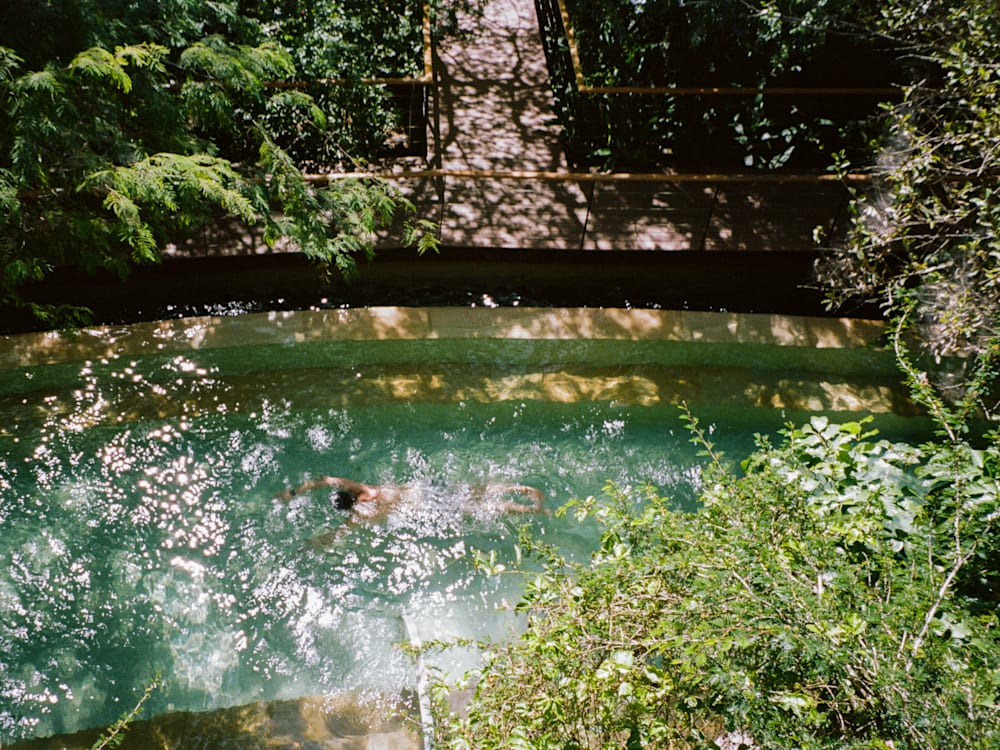
It’s among this soulful sleeve of Costa Rica’s Guanacaste Province that we find Rio Perdido Hotel & Thermal River, where Mr Smith and I are spending two nature-filled nights.
The hotel brims with life. It’s in one of the rarest ecosystems in the Americas, with lush jungle, volcanic canyons and river-hugging dwarf forest. We approach it without expectation or agenda, other than to immerse ourselves fully in our surrounds from first light through to last.
DAWN
I wake first, and brew two cups of coffee while Mr Smith slowly stirs. We’re up early for a free yoga class, which takes place on a river bank, soundtracked by the stream. It’s a relaxing way to begin the day, albeit for the mosquitos which take to Mr Smith like, well, a mosquito to blood. I can’t help but chuckle as he multitasks – liberally spraying deterrent while also attempting ‘extended side angle’ into ‘warrior two’.
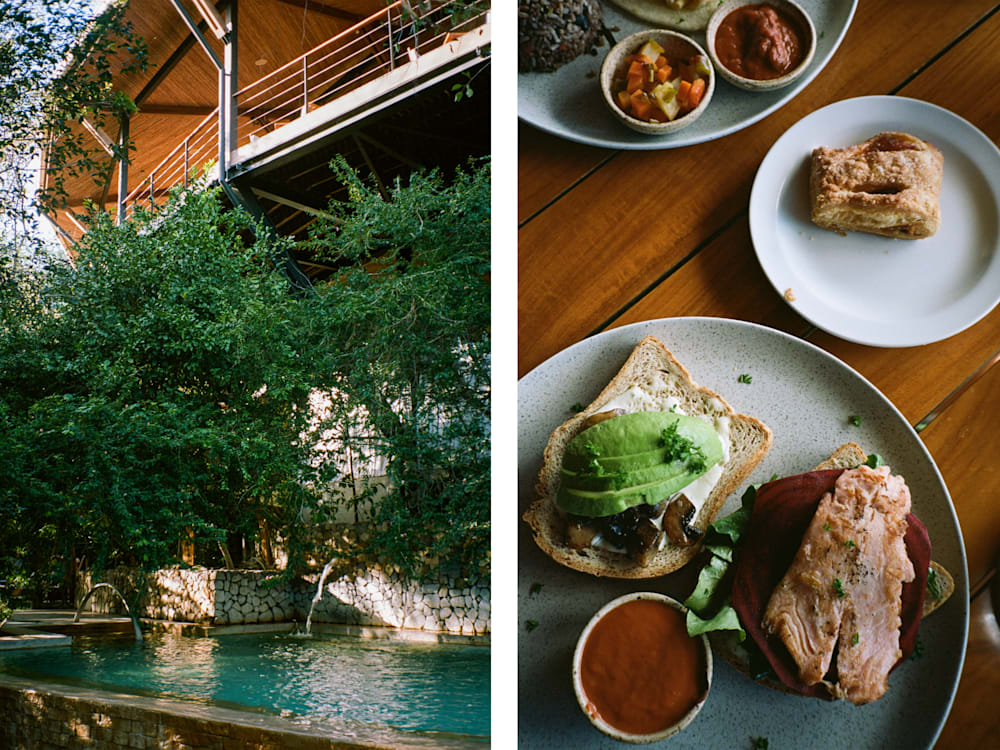
Next is breakfast in the lodge restaurant. It’s a calming space, thanks to the soft curves in the design, wraparound jungle views, chirping birds and gentle splashes from the mineral pools just below.
We chat to the barista, who happens to be a local. Unsurprising, actually, given that 90 per cent of the staff are from the neighbouring town. And social sustainability is nurtured beyond this: the kitchen operates a locals-first supply chain, guests can support artisans by purchasing from the boutique, and the team work to educate neighbouring communities on biodiversity.
DAYTIME
After coffee and pancakes, we try our hand at zip-lining. It allows for a greater appreciation of the space and scale of our surroundings: we whizz through deep ravines, tackle Tarzan swings across waterfalls, and fly over the thick forest.
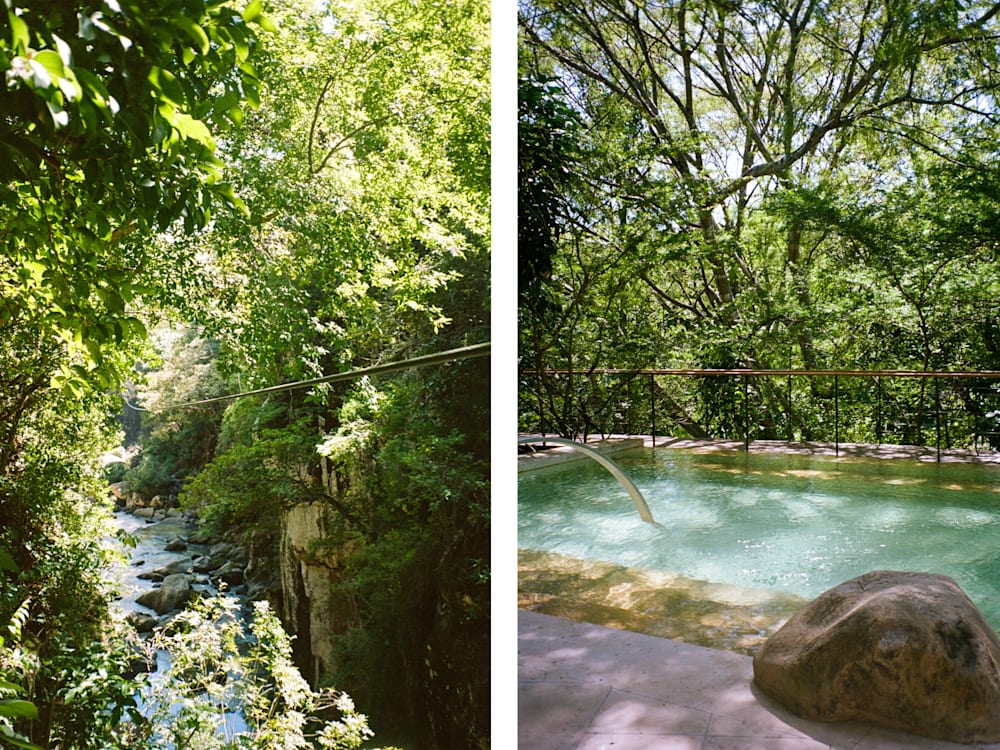
Our guides are fascinating. We learn that the lowlands were discovered by a group of Costa Rican explorers (now the owners). Once a meeting place for the ancient Chorotega – one of eight indigenous groups that inhabited the country many years ago – the land is cemented in local life.
The owners have been careful to respect this, promising that less than one per cent of the land will be built on. The rest has been lovingly reforested under a rigorous sustainable development plan, protecting the 1,500 acres from detrimental development.
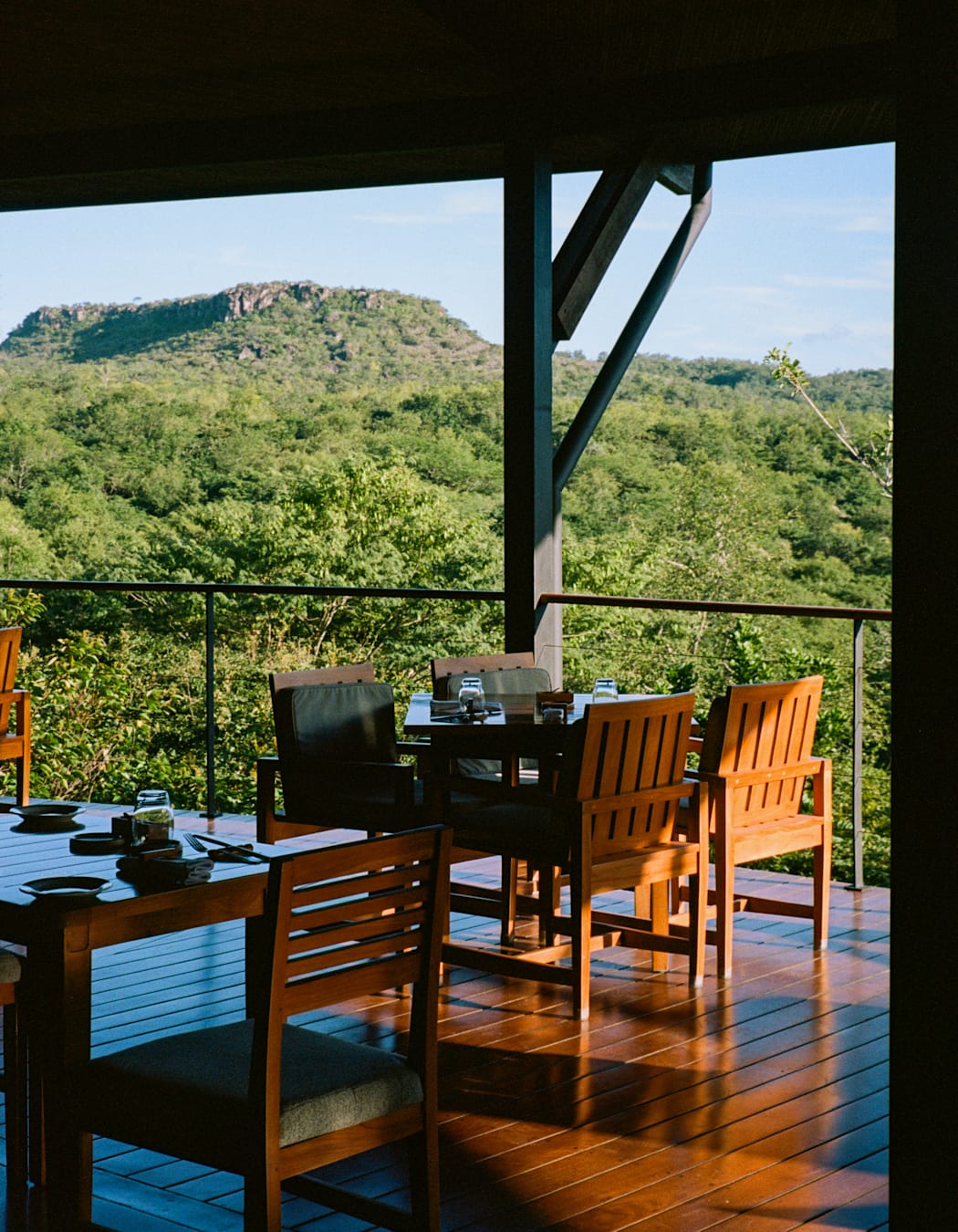
Exhilarated, exhausted (and to be honest, very sweaty), we head to the hotel’s three geothermal mineral pools to relax. There’s a swim-up bar so we order local beers, shrimp ceviche and steak tacos from a menu that champions the region’s produce. On retiring to a sun-bed I’m lulled into an early afternoon nap – perhaps because of the calming sounds of wildlife and rushing water; perhaps because of a food coma. We’ll never know. But soon enough, Mr Smith gives me a nudge: this is a hotel – and a destination – made for the restless. It’s on to the next activity.
DUSK
As the sun softens, we slacken the pace. A short walk through the reserve is Río Blanco and its three natural hot springs. One has a vat of volcanic mud to douse on your skin, with promises of healing properties.
We take our time exploring, and night settles in. Soon enough, the only light is from the stars, so we make our way back to our canopy-hugged cabin. We’re in a cosseting central bungalow: outfitted with dark hues, brushed copper accents, a spacious terrace and a bathroom partly open to the sky. There are black-out drapes, but the thick woodland affords us complete privacy anyway.
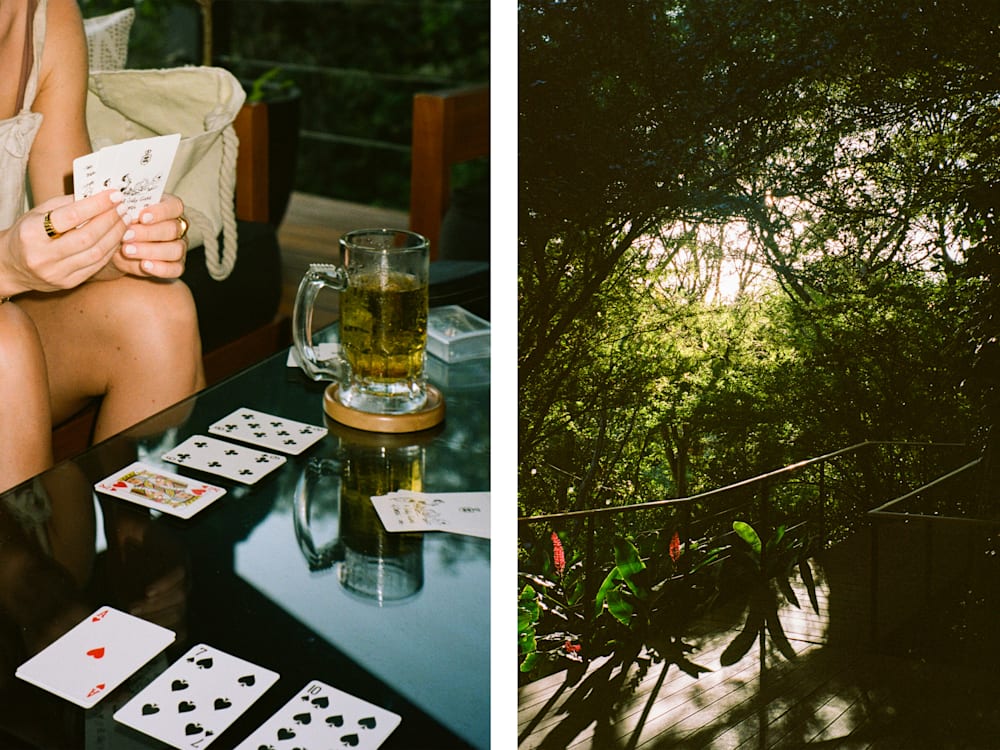
Everything in the cabin has been thoughtfully curated, especially given the hotel’s elite-level credentials in sustainable tourism, including five stars from the Ecologic Blue Flag programme and a carbon-neutral certification. It shows. We sleep well, eat well and feel well thanks to the choices in bedding, lighting, produce and bath products.
Nature really is the muse here – the focal point of activities, rooms, restaurants and conversations. It’s impossible to not be present, to not live and breathe your surroundings. There’s little barrier between the inside and out: structures are either entirely open-air or have floor-to-ceiling windows and oversized balconies. So much so, that it’s almost with an earthy apology that come nighttime you sink into a bed that’s, well, indoors.

